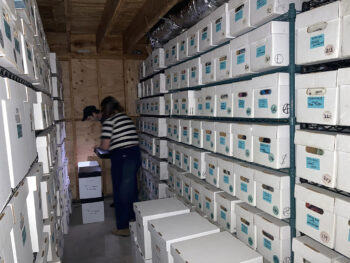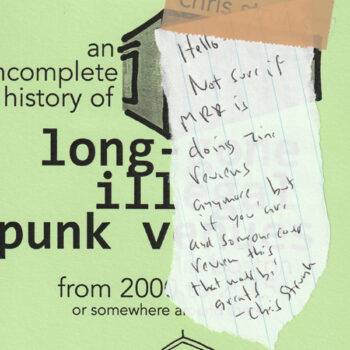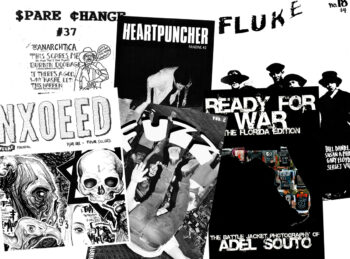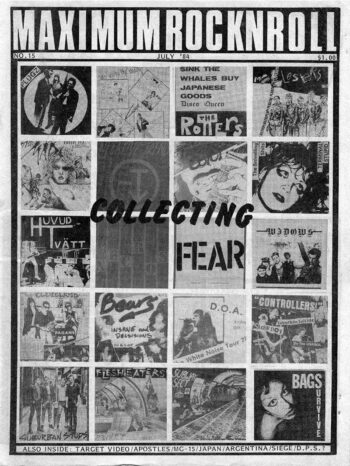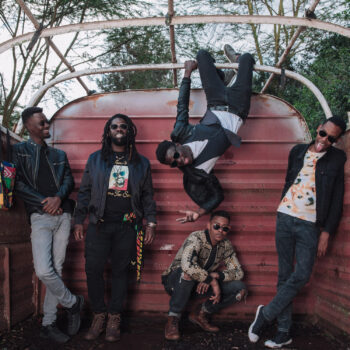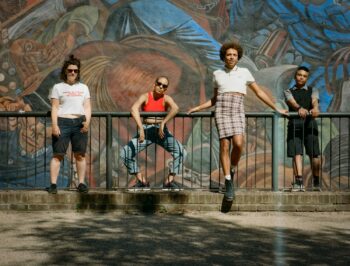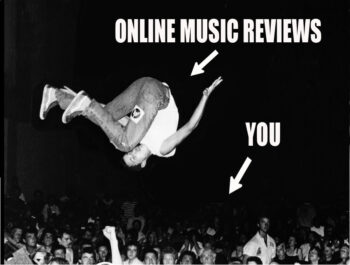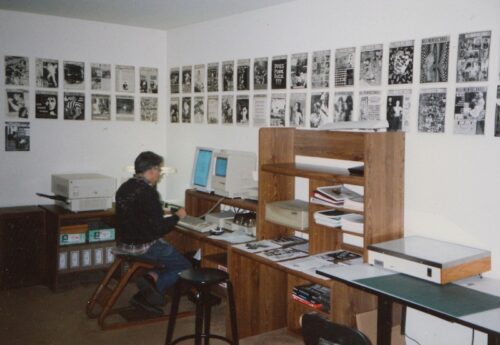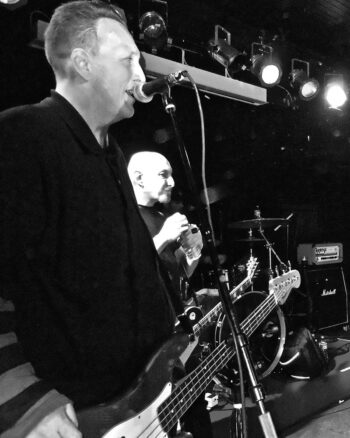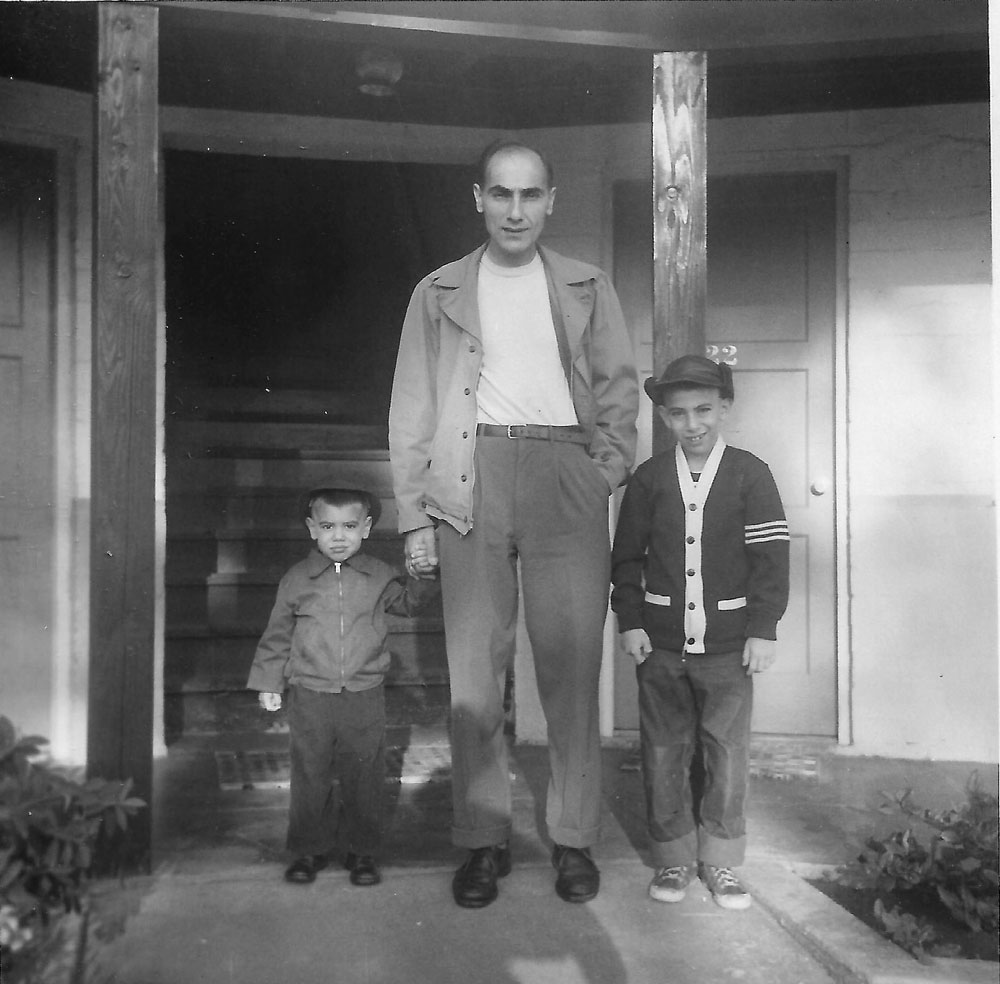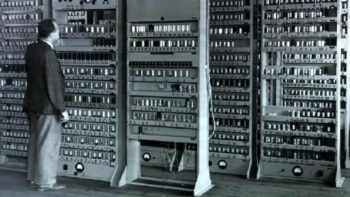Fight No More: The Music and Death of J.J. Jacobson of Offenders
By David Ensminger.
As the crushing cold front overtook much of North America, including an unusual swath of the South, and just hours after I completed an interview with Pat Doyle of Offenders, he notified everybody via social media that Offenders singer J.J. Jacobson, who joined the band in 1981, died in the streets of Austin, causes unknown so far. Jacobson and Doyle steered the band through the fiery albums Endless Struggle and We Must Rebel and a handful of tours across America when they would gig with bands like Condemned to Death and Crucifucks.

Now, like Marky Ramone being the sole survivor of the Ramones, Doyle is the last remaining Offender. Not long ago, he and Jacobson teamed up for a reunion of sorts by tapping local talent like Craig Merritt (World Burns to Death) and Jeff Martin (Buzzcrusher), which highlighted the reissue of their albums by Southern Lord in 2014. The gigs also paid homage to their lost bandmates Mikey Donaldson (who played with MDC and Sister Double Happiness as well), who died in 2007, and Tony Johnson (Tony Offender), who died from cancer in 2012.
Offenders tunes remain a vivid reminder of the alchemy between punk, metal, and hardcore in the 1980s and evoke a countercultural sense of defiance, resolve, and aggression that can be easily paired with the new world: tunes like “Get Mad,” “Youth Riot,” and “Fight Back” are just a few that laid the groundwork for their ethos and appeared to act as precursors to some current social movements. “I met J.J. at a meeting with the Offenders for the cover of Endless Struggle,” recalls Carlos Lowry, whose art became a permanent fixture on albums by the Dicks and MDC. “He was very young and liked the cover quite a bit. He was the only one at the meeting that noticed the hidden faces in the rock formations. Over the years, I heard all the stories about hard-living and legal problems, but he was always sweet to me, like that young kid I first met, but with a countenance that seemed much older than his years. As a performer, he was great, and to me he seemed to represent the world of hardcore that was coming, less the older rockers turned punks that most of my friends were exciting and quite a bit less compromising.”

Offenders were crucial and salient to Austin’s veteran punk and hardcore community, who is still reeling from the recent loss of Chris Wing, singer for Jerryskids and Sharon Tate’s Baby. As Gary Floyd told me by phone, Wing was a brick that helped hold up the wall of memory for that juncture in Texas music. Jacobson, in turn, was a younger peer who joined Offenders, a former Killeen, Texas-based band, three years into their lifespan, just as they saddled up with the Dicks and the Stains/MDC and shook up Austin with a roster of more militant tunes that tended to shunt new wave aside. “He came up to me once and threw his arm around me and hugged me out of nowhere…we were punk rock singers and brothers. He was a sweet kid back in the day,” Dave Dictor of MDC recalls, and now “we are all dying off one by one.”
Like many punks, Jacobson, who did a stint in prison, had his demons. To some degree, many punks have used music to cope and translate a sense of trauma. They often relocate their pain—from torn up communities and families, from bruises and physical assault—into the psychic territory of their songs. In doing so, they change from being hopeless, ill fated, and powerless, to embodying a survivor’s rebel yell. In some ways, music allows them to de-fang the pang, for moments at least. What was once fragmented, confusing, battering, and even dooming, can be grappled. What was once unspoken and made invisible careens to the surfaces of the songs, shared in a space of mind with audiences from trailer parks and manicured houses to run-down apartments and no-name tent cities. Even more so, Offenders took the pain and filtered it through an inventive musical vocabulary. They molded the templates.
“I saw a lot of hardcore bands in the early- and mid-’80s, at least 50, probably significantly more than that,” tells Jeff Smith of the Hickoids and Smart Dads, who messaged me after sharing his thoughts with Doyle. Smith is a longtime fan of the “blistering….pioneering” unit. He also roadied a few times for the band, later played in a band with original singer Mick Buck, and even shared a drug dealer with Jacobson a decade and a half back. “A lot of [the bands then] were flat out shitty, most were entirely unmemorable and musically derivative. Some were a little slicker but full of nauseating political poseur-isms. The Offenders were none of that. The music was top-notch, original and powerful. And J.J. was as real as it gets. His struggle was real. He was genuinely as hard as the music. I don’t think he cared what the words were to the anthems he sang because that came from his heart. He was born into a world of chaos and he didn’t need to fantasize about hard times or downward mobility, he lived it.” He continued, in earnest, “Some singers are real and good. Some singers are good because they’re real. That was J.J. Rest in chaos.”

Those sentiments are shared by Doyle, who dealt with J.J. firsthand in Offenders. In the interview I pursued with him, he opened up about the singer: “J.J. was sixteen when he joined the band, and at least partially illiterate. The kid was a perpetual runaway/dropout and had already been in juvie numerous times by then. He had some epic abusive shit going on at home and responded just as you’d expect. So, the lyrics came from a real place. His girlfriend and I helped him channel those feelings into workable lyrics. I think his first song was “Fight Back.” After that, stuff like “We Must Rebel” and “Like Father Like Son” and “Wanted by Authority” just rolled off his notepad like there was nothing to it, like they’d been waiting in the wings for years. In retrospect, I think his lyrics still make an impact today because of their authenticity. Most punks came from the white suburbs and just pretended to be oppressed, but J.J. had street cred in spades, and it resonated with the kids. He didn’t just scream about Reagan and the specter of nuclear war, his words came from the real experiences he carried around with him.”
His death may not have surprised many people locally—those who saw him alone on the south side, those who knew his struggles—but in the land of the free, you don’t have to agree with the way people live, but you can mourn Jacobson’s sizable talent, his passion-lined voice, and his gumption and rage, that got trammeled in lost time, personal trials, and the mess heap of addiction. “We all realized that J.J. walked his own path, resisting those who loved to help him,” Tracey Torres of Black Salve noted to me on Facebook, yet “[he] was, and will always be, a legend to the Austin scene.”
His voice will always be there: powerful, troubled, frantic, angry as hell, hopeful, super emotive, and real as a bomb blast.

